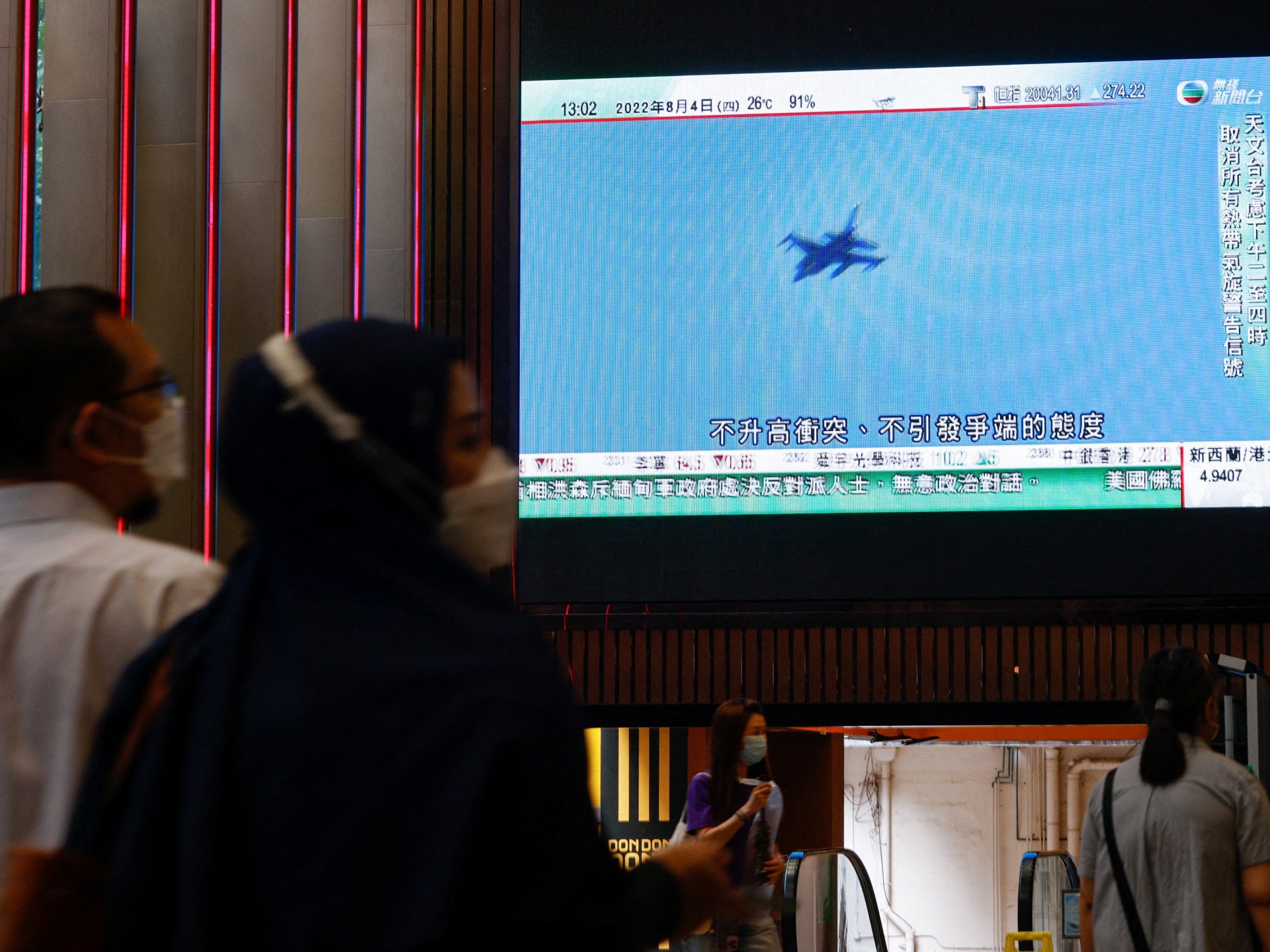
More than 10,000 Chinese were in Ukraine when Russia invaded on February 24, 2022.
The “friendship without borders” that Russian President Vladimir Putin and his Chinese counterpart Xi Jinping declared between their countries three weeks before the invasion did not prevent the Chinese people from suddenly finding themselves in a war zone.
Although the Chinese leadership seemed to be as surprised by the Russian invasion as the rest of the world, this shock did not translate into condemnation of Moscow’s actions, then or now.
Days after the invasion, the People’s Daily, a Chinese newspaper, published a message on the Chinese social media platform Weibo, in which the Beijing Embassy in Kiev called on its citizens in Ukraine to unite amid the deteriorating situation.
The People’s Daily – along with most of China’s new media – had by then united behind Russia and the Ukraine war.
More than a year later, Chinese media coverage of the war still strongly reflects Moscow’s narrative, at times amounting to a mere “copy-and-paste” of Russian war propaganda.
“I gave up trying to understand what was going on,” Yu Lingsong*, 24, from Xiamen, told Al Jazeera.
There is one version of the war that was reported by the Chinese media and the Chinese people, Song said, and a very different version by the Western media and their Western friends.
She added that this made her confused.
Various media facts
Hsin Yi Lin in Shanghai has not completely given up trying to make sense of the situation in Ukraine. But she concluded that when it comes to war, China is in an information bubble cut off from the rest of the world.
“I think most Chinese people don’t notice this because they either don’t pay attention to the war or they only get news about it from the Chinese media,” she told Al Jazeera.
But if you are able to look beyond the firewall [a term used to describe China’s draconian censoring of the internet]She told Al Jazeera, “You see that the war is talked about very differently and it is reported very differently in the international and Western media.”
Early in the invasion, Chinese state broadcaster CCTV published allegations that the US funded the development of biological weapons in Ukrainian laboratories. It was also reported that Ukrainian President Volodymyr Zelensky had fled Kiev in the wake of the first wave of Russian attacks.
Then the Chinese media dutifully reported Russian assertions that reports of torture and killing of Ukrainian civilians in the town of Bucha, near Kiev, were “fake news”.
All along, the invasion was, and still is, referred to as a “special military operation,” just as it is in the Russian media.
Despite repeated statements by Chinese leaders that China is a neutral party in Russia’s war on Ukraine, the country’s state media is far from an impartial observer of the conflict.
Brian Tang from Guangzhou keeps up to date on the war through foreign media.
According to the 33-year-old, this means he cannot discuss the war with most people in his life because they largely get their information from Chinese TV and Chinese news online, leaving them with no information or very different information about the war than he has.
“It means that you not only have different opinions, but you have different facts,” Tang said.
He said there was no point in turning to Chinese social media to share his thoughts on the war. “What is the goal?” he asked rhetorically.
“Your posts may be removed by censorship and your account may be suspended or worse.”
At the beginning of the war, many public figures and university professors in China shared critical views of Russia’s invasion, but soon their posts were censored and many of them deleted their social media accounts.
The big goose becomes the weak goose
Despite the censorship and information bubble, both Lin and Tang noticed a change in the way the Russian invasion was addressed on Chinese social media.
Lin saw some anti-war remarks on Chinese social media when the war first broke out, but the vast majority of posts were pro-Russian and anti-Western.
“Now, I think there are a lot more posts and comments critical of Russia than there used to be, and they stay that way for much longer before they get removed by censors,” Lin said.
Lin and Tang also saw a change in online discussions of the war, as the term “weak goose” became more prevalent in posts and comments on Chinese platforms. Russia is often informally referred to as “big goose” in China because the Chinese word for “Russia” and “goose” sound similar.
“When Russia attacked Ukraine for the first time, we all heard that the Russians would win very quickly because people thought they were too strong and the Ukrainians too weak,” Tang explained.
When the Russian attack quickly faltered, Tang said, it turned out that the “big goose” was not as strong as imagined—it was actually a “weak goose”.
With or without censorship, Lin believed it was obvious to most people that the war would not go well for Russia, which led some Chinese to abandon their support.
“They were expecting a short war and now no one knows how long it will last,” she said.
As the war drags on, Tang believes that what is posted on Chinese social media and what is reported in Chinese media will matter less.
“In the end, the Chinese people will only want the war to end,” he said.
*Names of interviewees have been changed to accommodate requests for anonymity.

“Travel specialist. Typical social media scholar. Friend of animals everywhere. Freelance zombie ninja. Twitter buff.”





More Stories
Taiwan is preparing to face strong Typhoon Kung-ri
Israel orders residents of Baalbek, eastern Lebanon, to evacuate
Zelensky: North Korean forces are pushing the war with Russia “beyond the borders”